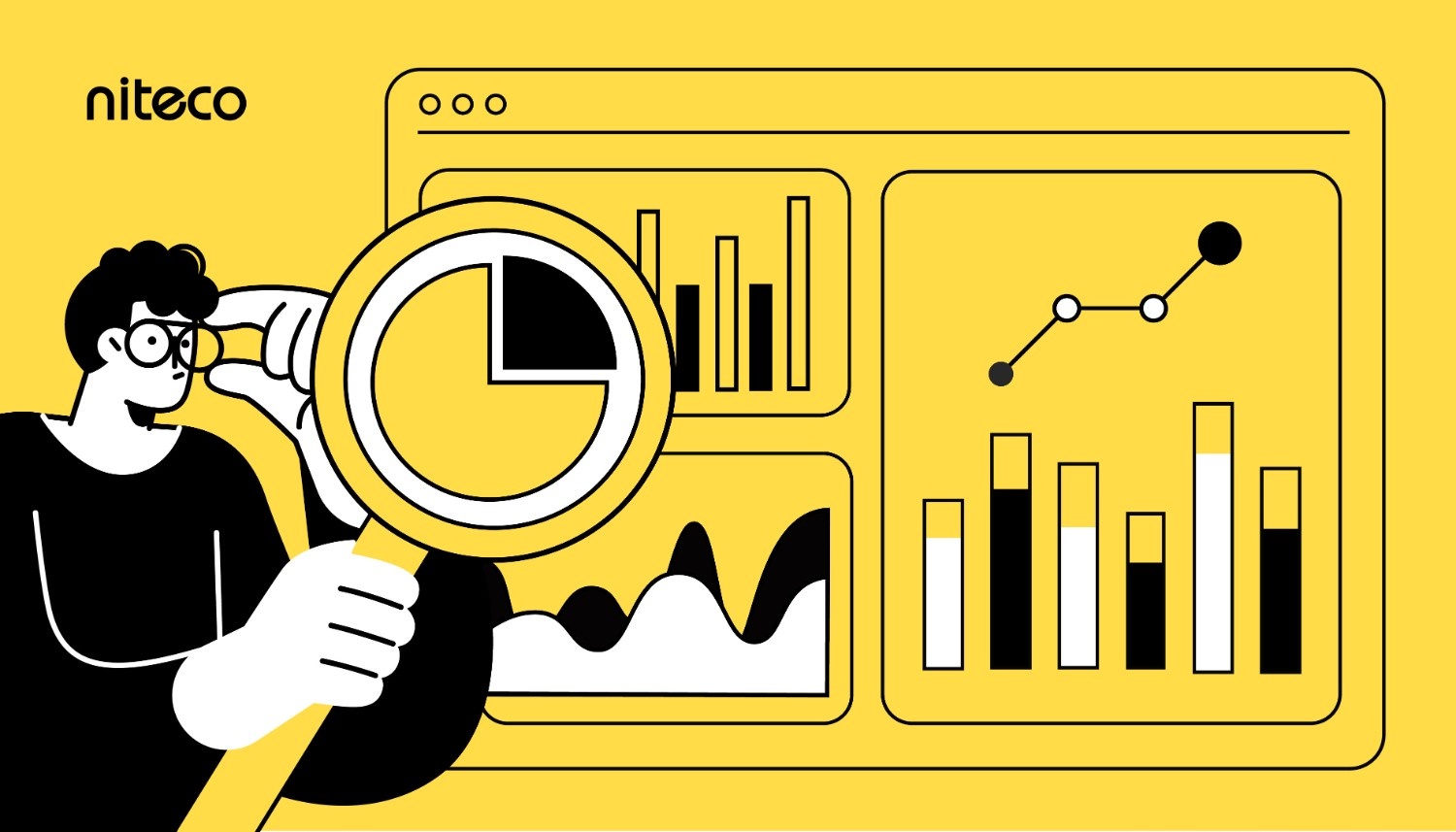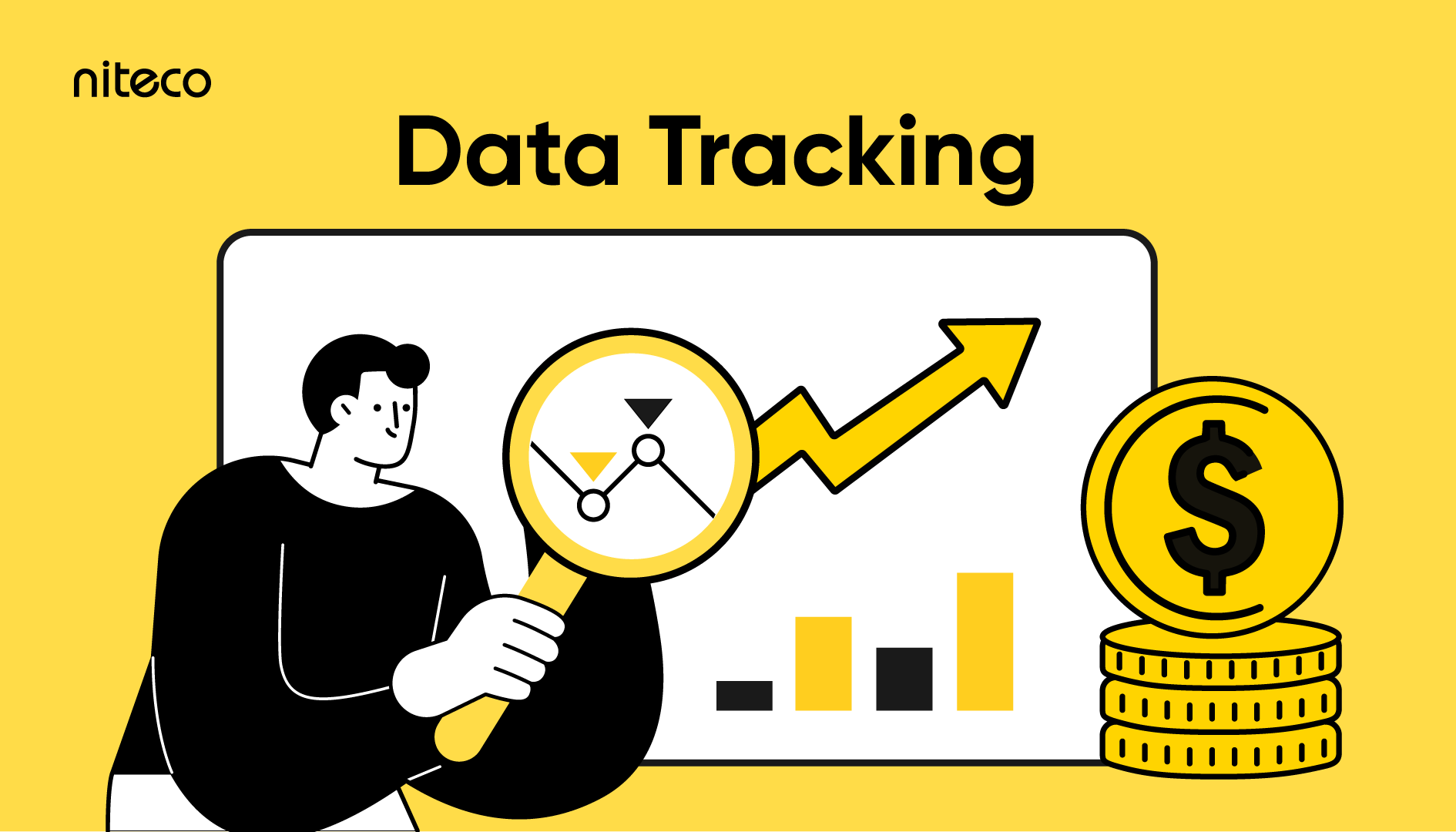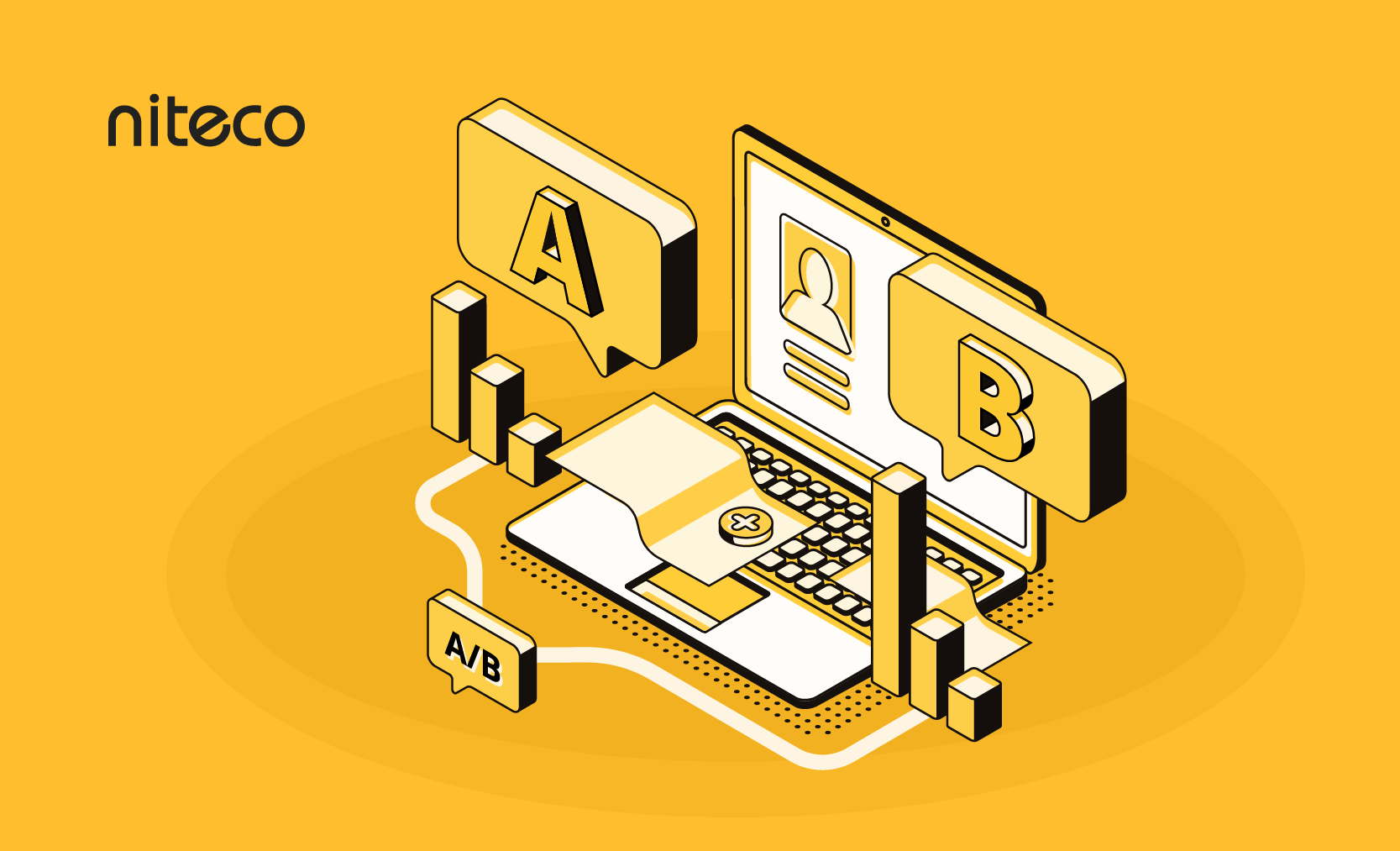With potential buyers easily deterred by confusing interfaces or uninspiring content, optimizing customer-facing platforms becomes crucial. To tackle this challenge, businesses increasingly turn to Digital Experience Platforms (DXP) and Content Management System (CMS) like Optimizely and Sitecore.
While both Optimizely and Sitecore may appear similar in technology and offerings, significant differences exist between them. Optimizely stands out for its continuous product evolution and customer service enhancements, while Sitecore lags in modernization efforts. As businesses seek the best DXP to stay competitive, Optimizely emerges as the top choice. Its integrated approach seamlessly combines content, commerce, experimentation, personalization, and optimization, offering a versatile platform for delivering exceptional digital customer experiences.
Of course you are not convinced now, keep reading to discover which aspects of Optimizely outperform Sitecore, and you might be inclined to migrate right away!
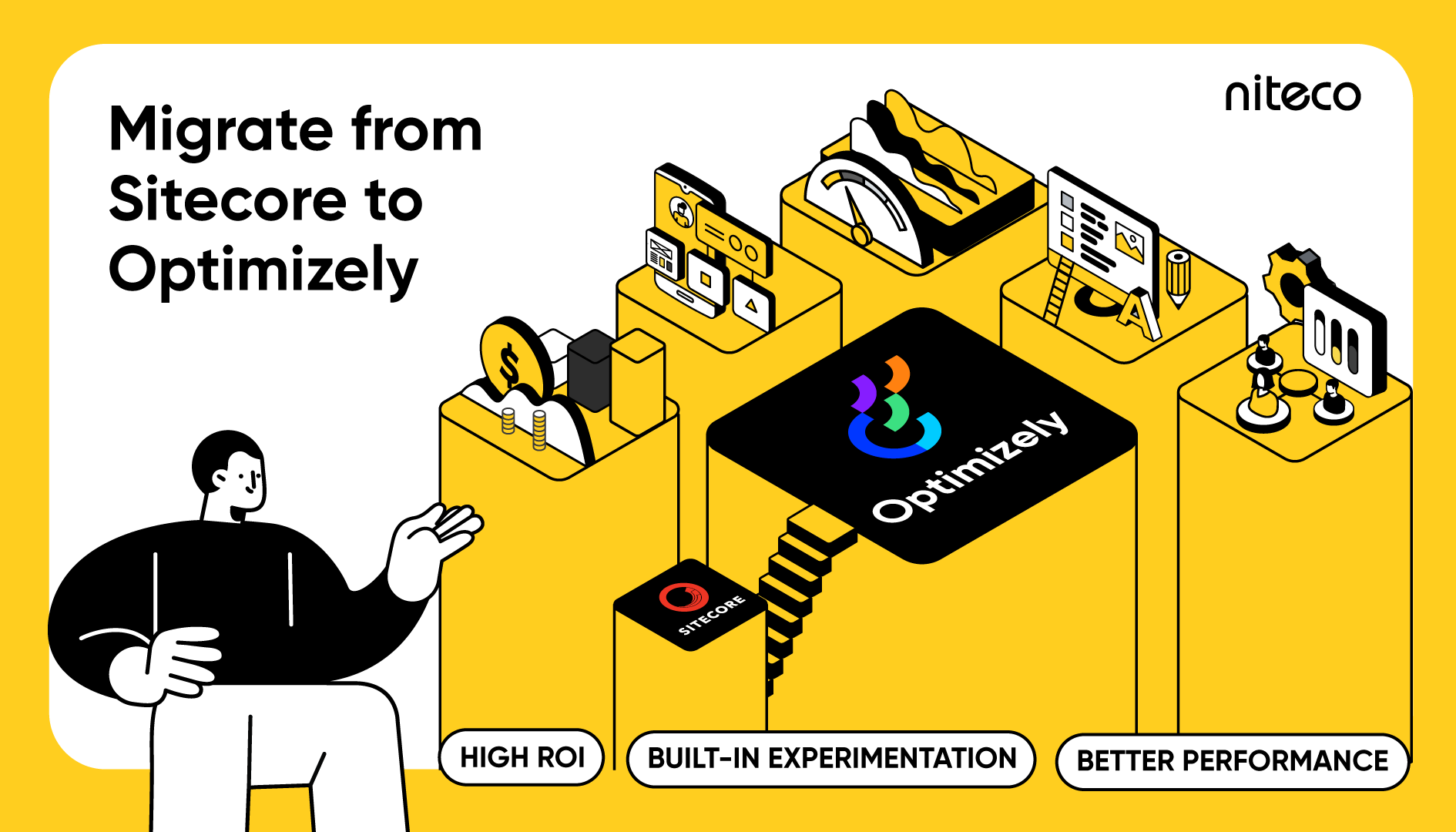
Overview of Optimizely and Sitecore
Optimizely
Originally established in Sweden as Episerver in 1994 and rebranded as Optimizely in 2020, the company boasts a rich history in digital experience solutions. Renowned for its robust CMS and Commerce offerings, Optimizely offers intuitive tools for content creation, optimization, and delivery, alongside a suite of optimization tools like experimentation and analytics. Optimizely One (DXP) serves as the core platform for facilitating personalized digital experiences, providing more enhanced capabilities for content management, personalization, experimentation, analytics, and commerce.
Sitecore
Founded 2001 in Denmark, Sitecore is a comprehensive DXP that offers a suite of 11 products, organized into two main categories: Content Cloud and Engagement Cloud. The Content Cloud includes Search, XM Cloud (a modern SaaS CMS), Content Hub Operations (CMP), Content Hub (a centralized digital asset management solution), and Content Hub ONE (a lightweight CMS).
Head-to-Head Comparison: Optimizely vs. Sitecore
Sitecore and Optimizely (formerly Episerver) are frequently compared due to both building their offerings around a robust DXP and CMS. Both platforms offer comprehensive suites of tools for content management, personalization, experimentation, analytics, and commerce, making them popular choices regardless of industries.
In this comparison, we will make things more accessible to marketers by thoroughly examining each platform and assessing them based on their technology, capabilities, features, user-friendliness, support, partnerships, and pricing.
Technology
Optimizely's current DXP framework is built on the latest .NET framework, .NET Core. This choice ensures optimized website performance, higher development efficiency, and a future-proof platform. Meanwhile, Sitecore still relies on the older .NET 4.8x framework and legacy ASP.NET dependencies.
Why should you consider a DXP or CMS with the latest .NET? Because an app built on .NET Core not only optimizes user experiences and reduces bounce rates but also facilitates smoother engagement. Moreover, an app that embraces .NET Core ensures businesses like yours can access the latest advancements, including enhanced personalization and support for headless architecture, crucial for tailored digital experiences and staying ahead of the technological curve.
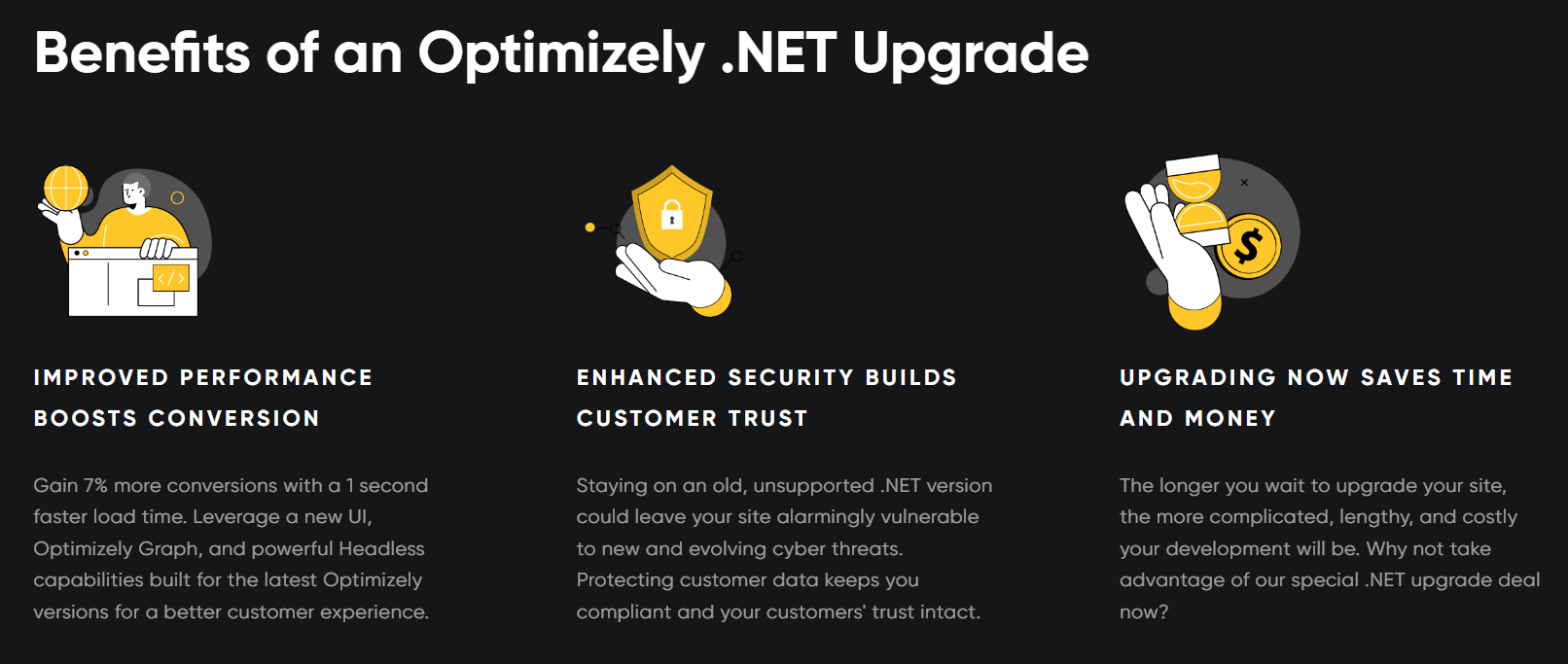
Capabilities and features
Experimentation
A good commerce platform nowadays should have full web and feature experimentation capabilities with real-time segmentation. In this area, by providing a more comprehensive experimentation offering, Optimizely must be declared the clear winner.
While Sitecore only provides web experimentation, which is a must-have for every DXP, Optimizely advances its ecosystem with feature experimentation, completing your experimentation circle (collaborate, experiment, personalize, and release). In Optimizely’s feature experimentation, you can roll out specific features to specific audiences and roll them back just as easily with the help of its REST API and Targeted Deliveries.
Another standout feature of Optimizely is its advanced multi-page funnel testing, allowing users to create experimental user flows spanning multiple landing pages. This capability provides deeper insights into platform performance and affords users greater flexibility in testing hypotheses.
In contrast, Sitecore lacks comparable experimentation and personalization capabilities. While it offers tools like split testing and Sitecore Personalize, these are recent acquisitions that haven't been seamlessly integrated into Sitecore's overall DXP. Sitecore's offerings make it challenging for users to execute critical strategies such as experimentation and personalization.

Personalization
In addition to personalization features we mentioned in the experimentation comparison above, you should also know about Optimizely’s Adaptive Audiences, one of the latest features facilitating personalization. Adaptive Audiences can revolutionize personalization for marketers by blending rules-based targeting control with the scalability of automated personalization and harnessing machine learning to segment users based on real-time behavior.
Sitecore does not have a comparable feature. Not to mention that Sitecore users have no direct access to the customer profile. If they wish to act on segmentation and export data, they will need a CDP to do so.
There’s a real-life example showing how Optimizely’s personalization can be incredibly impactful. Steadfast, one of Niteco’s customers, successfully migrated to Optimizely from Sitecore. They utilized Content Recommendations, a feature of Optimizely’s personalization offering, and Adaptive Audience to personalize the articles appearing at the bottom of its homepage as well as related articles under the "Well-covered" section, and recommended insurance at the bottom of each insurance page. The result? The website saw a staggering 286.6% increase in CTR.
AI and machine learning
Optimizely stands out as the pioneering DXP with complete integration of AI capabilities throughout its platform, Optimizely Opal. Optimizely Opal is not a standalone product, it is deeply integrated in content creation, experimentation, and data analysis, helping to boost productivity and performance with less manual effort. This tool facilitates AI-driven experimentation and personalization with its Stats Engine algorithms for faster experiment results and Stats Accelerator machine-learning algorithms for optimized traffic distribution. These advancements are made possible by the latest generative AI services with proprietary machine learning algorithms that Optimizely has been developing for over 15 years.
On the other hand, Sitecore AI does offer personalization and optimization features, though it doesn't have the same emphasis on experimentation as Optimizely Opal. Sitecore AI uses machine learning algorithms to gain insights into customer behavior and optimize website performance, but it doesn't have the same breadth of AI capabilities as Optimizely Opal.
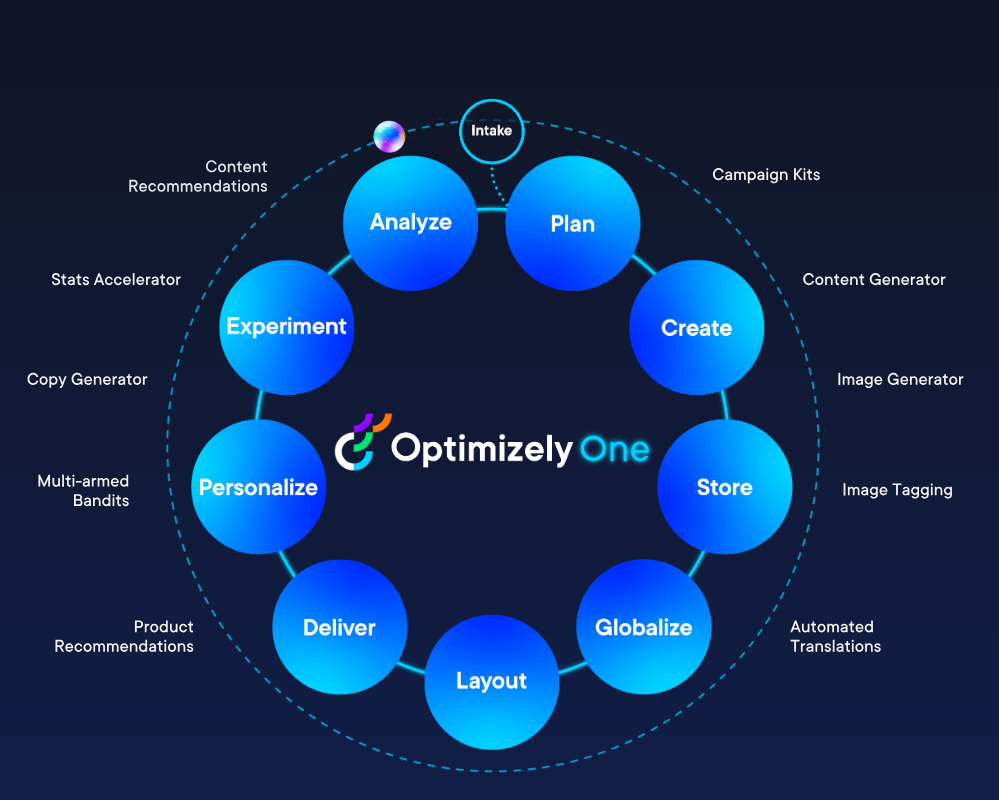
Opal is deeply integrated in Optimizely’s new “Marketing Operating System”, Optimizely One.
Wanna try Optimizely? Leave your information here!
User-friendliness
While Sitecore offers various CMS options with distinct features: XM, XP, XM-Cloud and Content Hub One, they don't seamlessly integrate, leading to a fragmented user experience and increased complexity. Users may need multiple options simultaneously, potentially requiring higher technical skills to implement them all. Moreover, Sitecore's legacy CMS foundations only compound the risk, complexity, high cost and reliance on developers.
In the meantime, Optimizely's unified platform has a greater focus on user-friendliness, unlike Sitecore's intricate and modular approach. This emphasis on simplicity across the Optimizely platform translates into notably faster time-to-market compared to Sitecore.
Support and Partnership
Sitecore restricts its support to certified developers within its ecosystem, limiting access to assistance. Conversely, Optimizely ensures round-the-clock, year-round support for all users, regardless of certification status. This comprehensive support structure extends a safety net to users, providing peace of mind and enabling smoother operations and troubleshooting processes.
Pricing
Optimizely follows a consumption-based pricing model tailored to diverse customer requirements. For instance, content-only users are billed based on annual page views or API calls, while Ecommerce users are charged according to annual transactions. This approach ensures both predictability and scalability, mitigating the risk of sudden cost spikes associated with hosting upgrades or server license purchases. Furthermore, by shifting expenses from capital to operational, consumption-based pricing offers organizational benefits, particularly from a financial standpoint.
On the other hand, Sitecore transitioned from perpetual licensing to subscription-based models in 2022, offering benefits like unlimited production servers and enhanced flexibility. However, costs are influenced by factors such as site visits, add-on modules, and concurrent users, potentially leading to increased expenses with additional features. You should also know that Sitecore users reported on the G2 peer reviews that Sitecore's pricing is reportedly 40% higher than the average DXP product.
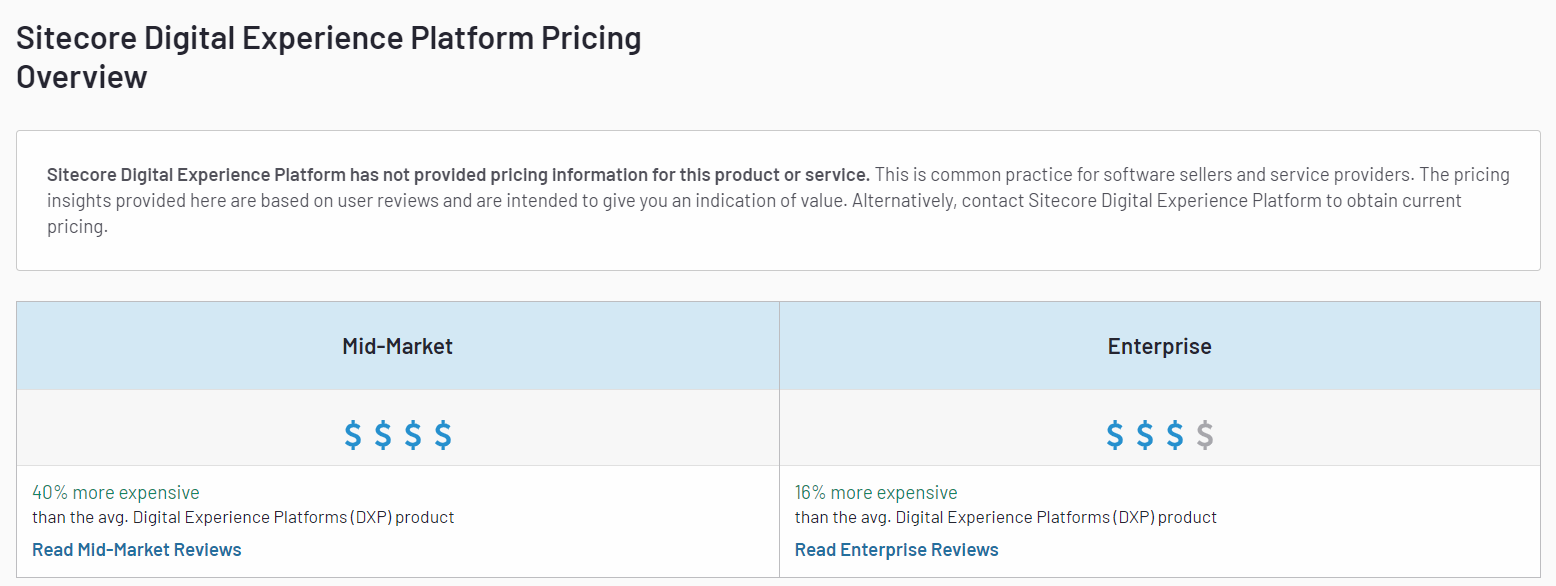
How long does a migration from Sitecore to Optimizely take? Let Niteco give you the answer!
Gartner DXP report says: Optimizely is a leader
The Gartner Magic Quadrant DXP report is a renowned analysis by Gartner, evaluating vendors in the DXP market. It offers concise insights into vendor capabilities, strengths, and market performance, aiding businesses in selecting DXP solutions aligned with their digital strategies and customer engagement goals.
2024 marked the 5th year in a row Optimizely DXP was named a leader in this prestigious report. Meanwhile, Sitecore used to be a leader as well, but is now considered a visionary. To understand the difference between these 2 positions, you can look at the table below:
| Criteria | Visionaries | Leaders |
| Forward thinking | Yes | Yes |
| Emerging needs | Firm grasp | Ample ability |
| Technology impact | Aware | Significant innovation |
| Offering | Lacking in some aspects | Consistently meeting needs |
| Service & support | Potentially lacking | Ample ability to support |
| Business ecosystem | Potential impairment | Successful business and partner ecosystems |
| Ability to execute | Impaired | High ability |
| Customer satisfaction | Varies based on offerings and support | Consistently meeting needs |
| Innovation | Potential for innovation | Significant product innovation |
| Market penetration | Varies based on offerings and support | Successful in selling across industries |
After reviewing the above table, you'll understand why Sitecore ranks lower than Optimizely. To further clarify, let's take a look at Gartner's explanation regarding the strengths and weaknesses of each provider.
According to the report, Sitecore's potential sale raises concerns about its future plans and products. Additionally, its latest update has left many customers hesitant to switch to the new XM Cloud SaaS offering due to cost and migration worries. The limited mention of only 4 different CMS options also creates confusion among customers regarding which product serves which purpose. Furthermore, Sitecore lacks clear guidance to address these uncertainties and effectively support its users.
On the other hand, Gartner highly praises Optimizely's ability to consolidate data from various tools with its new feature, Optimizely Graph, enhancing performance in AI-driven search and compatibility with external data sources. The report also indicates that Optimizely offers straightforward, scalable pricing and packaging, making it easier for new users to start and progress gradually compared to other vendors. Optimizely seamlessly integrates its acquisitions, leveraging elements from acquired technologies to enhance its DXP without mandating clients' complete adoption of the original acquisitions.
You can check out the report HERE.
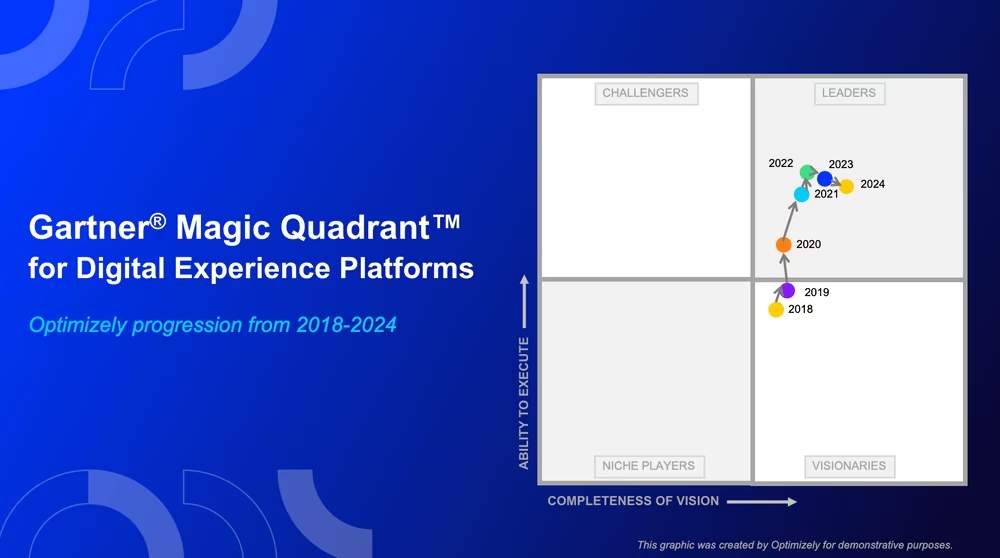
| Optimizely | Sitecore | |
| DXP ranking | A market leader for 5 years | Slipped from leader position, now is a visionary. |
| .NET framework | . NET CORE | Old .NET 4.8x and legacy ASP.net dependencies |
| User friendliness | 1 CMS with comprehensive content offering. | 4 distinct CMS options. |
| Features and capabilities | ||
| Experimentation | Web, feature experimentation, real-time segments, etc. | Web experimentation |
| Personalization | Content Recommendations and Adaptive Audience for better and real-time personalization. | Standard personalization with no direct access to the customer profile and requires a CDP for segmentation and data exports. |
| AI and machine learning | A built-in AI, Opal, helps with AI-driven experimentation and personalization. | Fewer AI capabilities compared to Opal. |
| Support | ||
| Support & Partnership | 24/7/365 support for everyone. | Only Sitecore certified devs are supported. |
| Cost | ||
| Pricing & Licensing | Consumption-based pricing tailored to business needs. | Subscription licensing, add-ons will increase the cost. |
Conclusion
You may already have your own reasons for choosing Optimizely over Sitecore or vice versa. However, from a marketer’s perspective, Optimizely DXP and CMS stand out as an excellent choice. Not only does it offer a unified CMS to streamline content tasks and an AI tool for improved experimentation and personalization, but it's also designed with user-friendliness in mind, catering to non-technical users. While Sitecore may excel for developers, your business is more than just developers and code. Optimizely facilitates better collaboration for your team with fewer complications and greater flexibility and capabilities.
As the largest certified Optimizely partner, Niteco is uniquely positioned to help your business leverage the full power of Optimizely. Contact us now for more details on how to migrate to Optimizely!
to transform your business and drive results?

